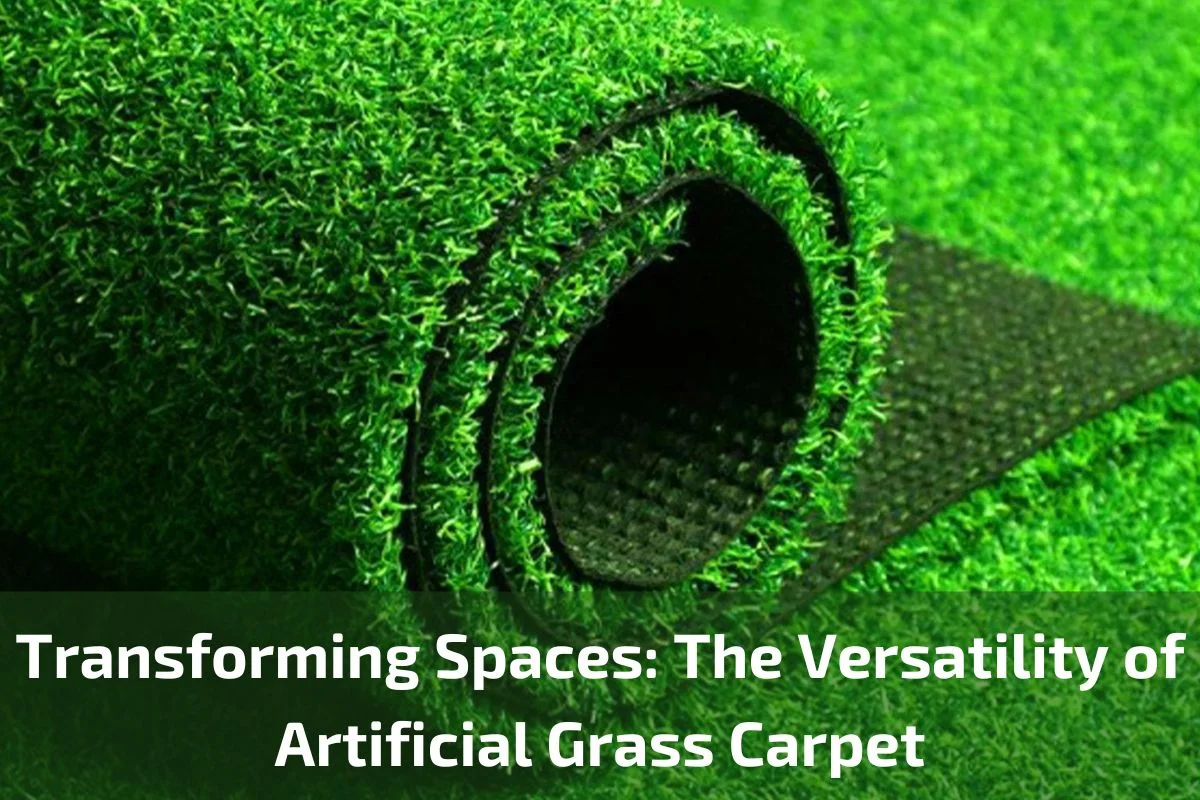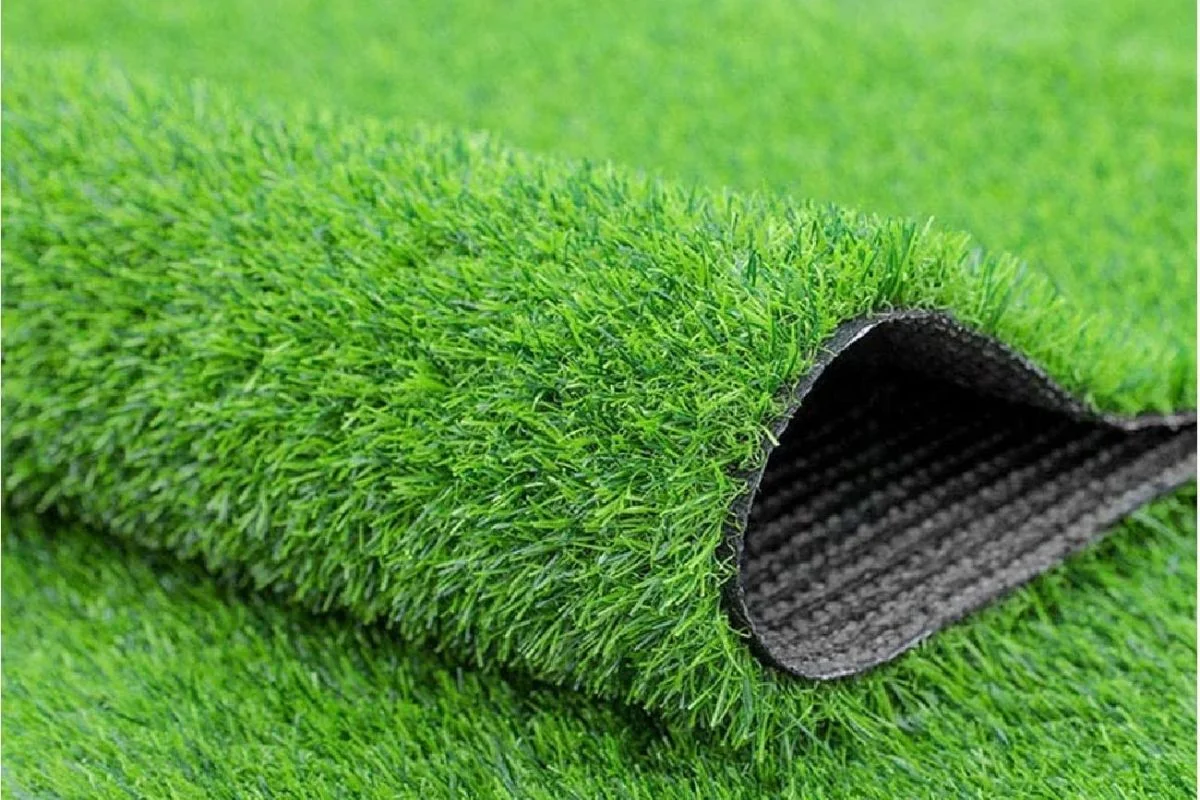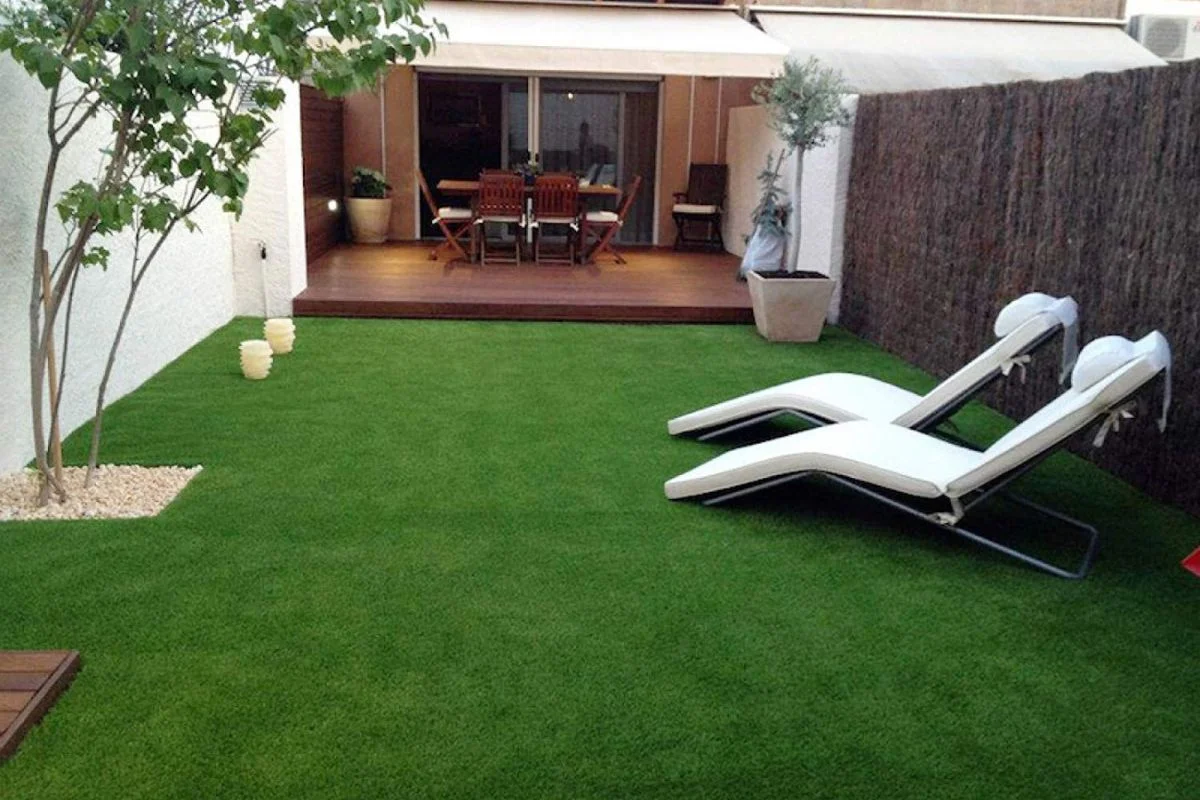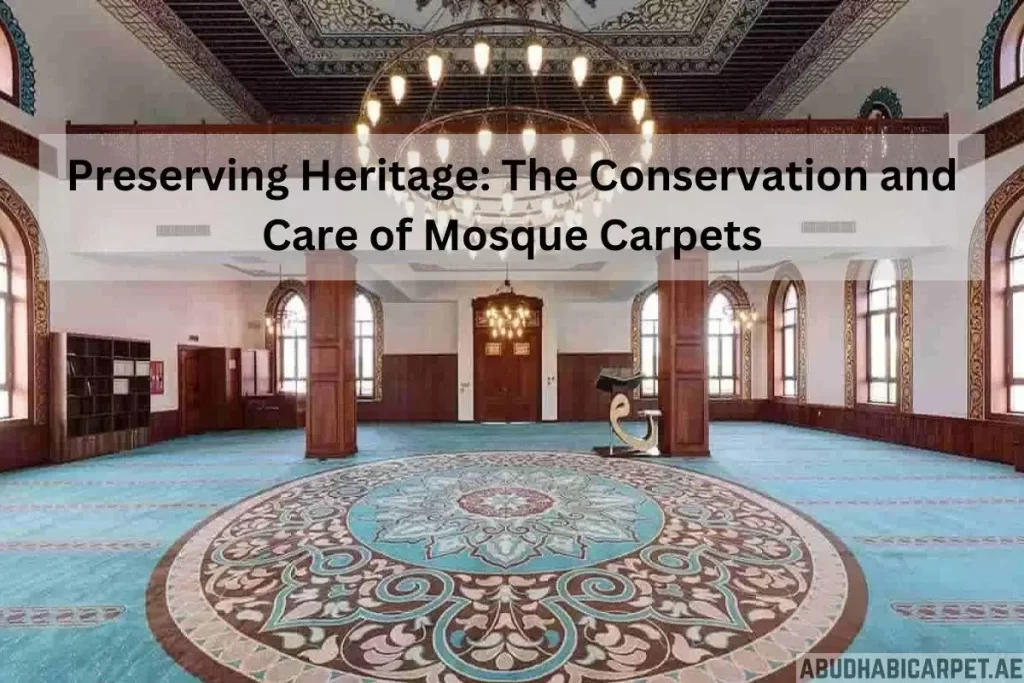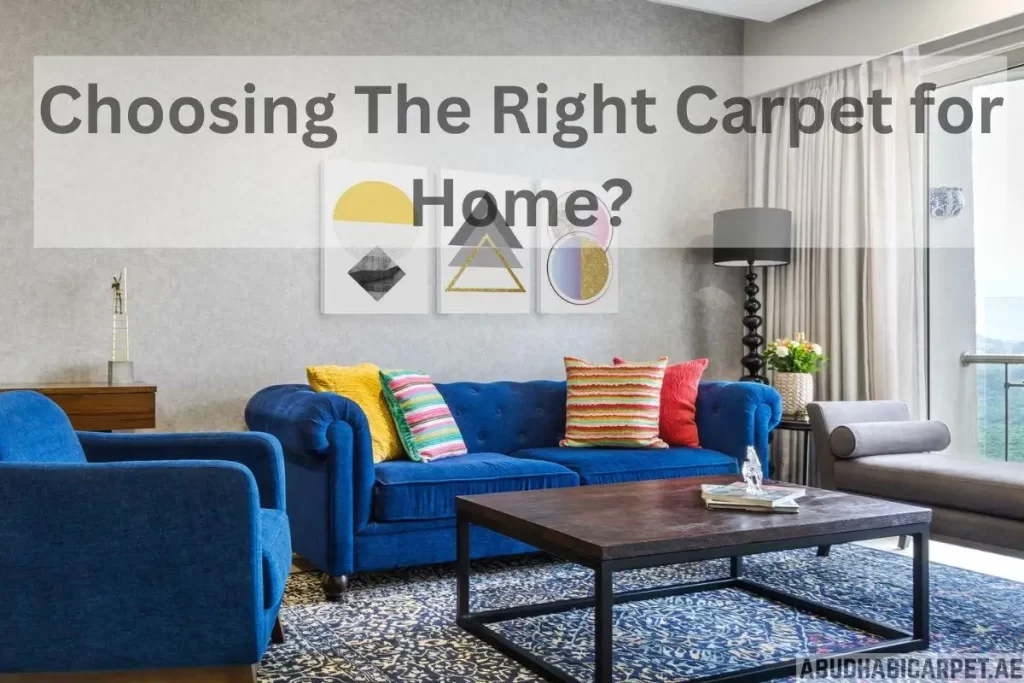In the realm of interior design, the quest for innovative and versatile materials has led to the emergence of artificial grass carpet as a unique and transformative element. Gone are the days when artificial grass was solely reserved for outdoor landscapes; today, it is making waves indoors, revolutionizing the way we perceive and utilize interior spaces.
Artificial grass carpet, with its lush green texture and natural appearance, offers a refreshing departure from traditional flooring options. It brings the outdoors inside, infusing spaces with a sense of vitality, tranquility, and connection to nature. From residential homes to commercial establishments, the versatility of artificial grass carpet knows no bounds, as it finds its way into an array of interior applications.
In this exploration, we delve into the myriad ways in which artificial grass carpet is transforming spaces, both aesthetically and functionally. We’ll discover how it adds visual interest to indoor environments, creates immersive sensory experiences, and serves as a sustainable and low-maintenance flooring solution.
Brief Overview of Artificial Grass Carpet in Interior Design:
Artificial grass carpet has emerged as a game-changer in the realm of interior design, offering a fresh and innovative approach to flooring solutions. While traditionally associated with outdoor landscapes, artificial grass carpet has found its way indoors, transforming interior spaces with its lush green texture and natural appearance.
In recent years, interior designers and homeowners alike have embraced artificial grass carpet as a versatile and aesthetically pleasing alternative to traditional flooring materials. Its ability to bring the outdoors inside creates a unique ambiance that evokes feelings of serenity, vitality, and connection to nature.
Artificial grass carpet is no longer limited to just recreational areas or play spaces; it is now being used in a variety of interior applications, from residential homes to commercial establishments. Its versatility allows it to be incorporated into virtually any indoor setting, adding a touch of greenery and visual interest to living rooms, bedrooms, offices, and more.
In addition to its aesthetic appeal, artificial grass carpet offers practical benefits for interior spaces. It requires minimal maintenance compared to natural grass, making it an ideal choice for busy households or high-traffic areas. Its durability and longevity make it a cost-effective flooring solution, while its eco-friendly aspects contribute to sustainable design practices.
The Benefits of Artificial Grass Carpet:
Artificial grass carpet offers a range of advantages that make it a desirable flooring option for both residential and commercial spaces. From its low-maintenance nature to its eco-friendly characteristics, here are some key benefits of artificial grass carpet:
Low-Maintenance:
- Requires minimal upkeep compared to natural grass, saving time and effort.
- No need for mowing, watering, fertilizing, or pesticide application.
- Easy to clean and maintain with regular brushing and occasional rinsing.
Durability and Longevity:
- Resistant to wear and tear, fading, and discoloration, even in high-traffic areas.
- Retains its lush appearance and vibrant color for years, with proper care.
- Ideal for areas prone to heavy foot traffic or frequent use, such as playrooms, pet areas, or commercial spaces.
Eco-Friendly:
- Conserves water by eliminating the need for irrigation, contributing to water conservation efforts.
- Reduces reliance on harmful chemicals, such as pesticides and fertilizers, promoting a healthier environment.
- Made from recycled materials in many cases, minimizing the environmental impact of production and disposal.
All-Weather Performance:
- Withstands fluctuating weather conditions, including rain, heat, and cold, without losing its integrity.
- Drainage systems built into the backing allow for efficient water runoff, preventing pooling or puddling.
- Maintains its shape and stability in areas with extreme temperatures or environmental challenges.
Versatility:
- Suitable for a wide range of indoor and outdoor applications, from residential gardens to commercial landscapes.
- Can be installed on various surfaces, including concrete, wood, tile, or compacted soil, with proper preparation.
- Available in different pile heights, textures, and colors to match any design aesthetic or functional requirement.
Cost-Effectiveness:
- Offers long-term savings compared to natural grass, with no need for ongoing maintenance or replacement.
- Installation costs are generally lower than those of natural grass, especially in areas with challenging soil or climate conditions.
- Adds value to properties by enhancing curb appeal and creating attractive outdoor living spaces.
Artificial Grass Carpet vs. Natural Grass: Pros and Cons
When considering whether to opt for artificial grass carpet or natural grass for your landscaping needs, it’s essential to weigh the advantages and disadvantages of each option. Here’s a comparison of the pros and cons of artificial grass carpet versus natural grass:
Artificial Grass Carpet: Pros:
Low-maintenance: Requires minimal upkeep compared to natural grass, saving time and resources.
Durability: Resistant to wear and tear, fading, and discoloration, maintaining its appearance for years.
Eco-friendly: Conserves water and reduces the need for harmful chemicals like pesticides and fertilizers.
Versatility: Suitable for various indoor and outdoor applications, offering design flexibility and functionality.
All-weather performance: Withstands fluctuating weather conditions without losing integrity or drainage efficiency.
Cons:
Initial cost: Higher upfront investment compared to natural grass installation, including materials and installation.
Artificial appearance: Some may prefer the natural look and feel of real grass over the synthetic counterpart.
Heat retention: Can absorb and retain heat, potentially making it uncomfortable for barefoot use in hot climates.
Natural Grass: Pros:
Natural aesthetics: Offers a lush and organic look and feel that many homeowners prefer for outdoor spaces.
Environmental benefits: Absorbs carbon dioxide, releases oxygen, and provides habitat for wildlife.
Cooler surface: Maintains lower surface temperatures compared to artificial grass, making it more comfortable for outdoor activities.
Soil improvement: Helps prevent erosion, promotes soil health, and contributes to a healthier ecosystem.
Cost-effective long-term: Lower initial cost compared to artificial grass, especially for smaller areas or DIY installations.
Cons:
High maintenance: Requires regular mowing, watering, fertilizing, and pest control to maintain appearance and health.
Water consumption: Demands significant water resources, especially in arid or drought-prone regions, contributing to water scarcity concerns.
Seasonal variations: Susceptible to weather conditions, including drought, frost, and excessive rainfall, which can impact growth and appearance.
Pest and weed control: Prone to pests, diseases, and weed growth, requiring ongoing management and treatment.
Creative Uses of Artificial Grass Carpet:
Artificial grass carpet is not just limited to traditional landscaping; its versatility allows for a wide range of creative applications both indoors and outdoors. Here are some innovative ways to use artificial grass carpet to enhance your living spaces:
Indoor Play Areas: Create a safe and inviting play space for children by covering the floor with artificial grass carpet. Its soft texture provides a cushioned surface for playtime activities, while its realistic appearance adds a touch of nature to indoor environments.
Pet-Friendly Spaces: Designate a pet-friendly area indoors by installing artificial grass carpet as a comfortable and durable flooring option for furry friends. Its easy-to-clean surface makes it ideal for pet lounging areas, litter box enclosures, or doggy daycare facilities.
Themed Rooms: Add a whimsical touch to themed rooms or event spaces by incorporating artificial grass carpet as part of the decor. Whether creating a tropical oasis, a sports-themed man cave, or a rustic outdoor retreat, artificial grass carpet can help set the scene and create a memorable atmosphere.
Art Installations: Use artificial grass carpet as a versatile medium for art installations or temporary exhibitions. Its flexible nature allows for sculptural forms, interactive displays, or immersive environments that engage viewers and spark creativity.
Green Walls and Vertical Gardens: Transform dull walls into vibrant green spaces by installing artificial grass carpet as a vertical covering or backdrop. Create living walls, accent panels, or hanging gardens to bring nature indoors and add visual interest to interior spaces.
Event Decor: Enhance event spaces such as weddings, parties, or corporate events with artificial grass carpet as part of the decor scheme. Use it to create photo backdrops, seating areas, or walkways that evoke a sense of outdoor elegance and charm.
DIY Projects: Get creative with DIY projects using artificial grass carpet as a versatile material for crafting and home decor. From custom rugs and doormats to table runners and wall art, the possibilities are endless for adding a touch of greenery to your home.
Miniature Landscapes: Create miniature landscapes or dioramas using artificial grass carpet to bring outdoor scenes to life indoors. Design miniature gardens, fairy habitats, or model train layouts with realistic grassy terrain that adds depth and dimension to your creations.
Maintenance Tips for Artificial Grass Carpet:
Proper maintenance is essential to ensure that your artificial grass carpet remains looking lush, vibrant, and in optimal condition. Here are some maintenance tips to help you care for your artificial grass carpet effectively:
Regular Brushing: Use a stiff-bristled brush or broom to brush the fibers of the artificial grass carpet regularly. This helps to prevent matting and keeps the grass blades standing upright, maintaining the natural appearance of the carpet.
Removing Debris: Remove any debris, leaves, twigs, or other objects that may accumulate on the surface of the artificial grass carpet. Use a leaf blower, rake, or vacuum cleaner with a brush attachment to clean the carpet thoroughly.
Rinsing: Occasionally rinse the artificial grass carpet with water to remove dust, dirt, and any stubborn stains. Use a hose or sprinkler system to spray the carpet evenly, paying special attention to high-traffic areas or spots that are prone to spills.
Spot Cleaning: Treat any spills, stains, or pet messes promptly to prevent them from setting into the fibers of the artificial grass carpet. Use a mild detergent or specialized artificial grass cleaner and a soft-bristled brush to gently scrub the affected area, then rinse thoroughly with water.
Preventing Odors: To prevent odors from developing, especially in pet areas, use an artificial grass deodorizer or enzymatic cleaner regularly. These products help to neutralize odors and keep your artificial grass carpet smelling fresh.
Weed Control: Keep an eye out for any weeds or unwanted vegetation that may grow through the artificial grass carpet. Remove any weeds by hand or use a weed killer specifically formulated for artificial grass, taking care to follow the manufacturer’s instructions.
Fluffing: If you notice any areas of the artificial grass carpet becoming flattened or compacted, use a power brush or specialized artificial grass grooming tool to fluff up the fibers and restore their natural appearance.
Protecting from Heat: During hot weather, be mindful of the temperature of the artificial grass carpet, as it can become hot to the touch. Avoid direct sunlight exposure during peak hours, and consider using shade structures or umbrellas to provide relief from the heat.
Regular Inspections: Periodically inspect the artificial grass carpet for any signs of damage, such as tears, loose seams, or uneven patches. Repair any issues promptly to prevent them from worsening over time.
Conclusion:
Artificial grass carpet offers a myriad of benefits and creative possibilities for enhancing both indoor and outdoor spaces. Its low-maintenance nature, durability, versatility, and aesthetic appeal make it a popular choice for homeowners, businesses, and landscape designers alike.

